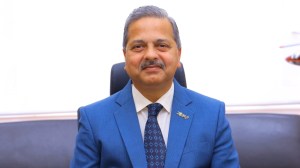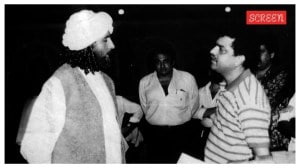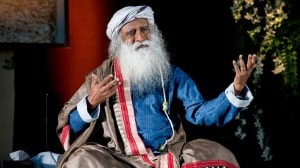Modern Magna Carta turns 60
We must be mindful of the taunt that the only thing universal about human rights is their universal violation.

On December 10, 1948, the Universal Declaration of Human Rights (UDHR) was adopted by the General Assembly. It was a solemn pledge with humanity. Eleanor Roosevelt, who chaired the session, hoped that the Declaration would become ‘the Magna Carta for all mankind’.
The immaculate premise of the Declaration is that human rights are not conferred as gifts by the state. An individual has human rights by reason of his or her being a member of the human family. These inherent rights were possessed anterior to the enactment of human rights instruments and constitutions whose object is to protect and promote human rights. The Declaration rejects the doctrine of the absoluteness of the state. Its philosophy is that there are limits to a state’s interference with the human rights of its citizens. Thanks to the Declaration and the enactment of the 1966 international human rights Covenants drawing inspiration from the Declaration and the evolution of human rights jurisprudence, a state’s treatment of its own people is not exclusively the internal affair of a state. It is a matter of legitimate concern of the international community which cannot remain silent in cases where there is state-sanctioned systematic policy and a consistent pattern of gross violations of human rights. The ghost of domestic jurisdiction has now been exorcised although some rogue states still passionately invoke it as a cover for their human rights violations.
The central theme of the Declaration is that human rights rest on human dignity. The first Preamble of the Declaration recognises “the inherent dignity of all members of the human family” and in the fourth Preamble reaffirms its faith “in the dignity and worth of the human person”.
Human dignity is at the centre of international human rights instruments. Right to life, mentioned in Article 3 of the Declaration, is a basic human right and finds a place in every international human rights instrument and national constitution. What is the meaning of life? Is it mere physical existence? Our Supreme Court in the landmark case of Francis Coralie Mullin placed an expansive interpretation on the expression ‘life’. The Court ruled that “the right to life is not limited only to protection of limb or faculty… the right to life includes the right to live with human dignity and all that goes along with it, namely, the bare necessaries of life such as adequate nutrition, clothing and shelter and facilities for reading, writing and expressing oneself in diverse forms, freely moving about and mixing and commingling with fellow human beings”.
The bare necessities of life mentioned in the Supreme Court judgment as components of the right to live with dignity are rights which have been declared in Article 25 of the Declaration. It states that, “Everyone has the right to a standard of living adequate for the health and well-being of himself and his family, including food, clothing, housing and medical care”. These are subsistence rights which every human being may reasonably demand from the rest of mankind as the moral minimum, the line beneath which no one should be allowed to sink without obliterating human dignity. They reveal a single thread and add up to a single right: the right to survive without which the possession of other human rights, such as freedom of speech or franchise becomes a cruel joke.
There is a striking similarity between our Supreme Court’s interpretation of ‘life’ and the opinion of the Human Rights Committee (HRC) established under the Optical Protocol of the International Covenant on Civil and Political Rights 1966 (ICCPR). The HRC has interpreted the expression, “every human being has the inherent right to life”, in Article 6 of the ICCPR as requiring states to adopt positive measures to eliminate malnutrition and epidemics and to reduce infant mortality and to increase life expectancy. Clearly, certain economic and social rights have been incorporated into the concept of the right to life. There is nothing revolutionary about this approach because after the Vienna Declaration 1993, it is now accepted that civil-political rights and economic-social rights are intimately related and are interdependent and indivisible.
International human rights thinking recognises that living in dignity means keeping body and soul together while upholding one’s values and maintaining the integrity of one’s fundamental rights. But what does life with dignity mean to our masses who are crushed by poverty and hunger? Physical torture is violence against the human person and is indefensible. But is daily deprivation of food and shelter and medical care any less a violence to the human personality? It is too often forgotten that poverty and hunger are the most potent causes of violation of basic human rights. We have not yet grasped the stark truth in Bertolt Brecht’s lines: “However much you twist, whatever lies you tell / Food is the first thing / Morals follow on / So first make sure that those who now are starving / Get proper helpings when you all start carving.”
The sordid spectacle of billionaires and trillionaires revelling in obscene opulence whilst the majority of mankind are struggling hard to keep body and soul together makes a mockery of the solemn rhetoric of the Declaration. We cannot ritualistically celebrate Human Rights Day every December 10, unmindful of the cynic’s taunt that the only thing universal about human rights is their universal violation. There is an element of truth in this barb. However, our reaction should not be one of despondency. It must not be forgotten that thanks to the Declaration a new sense of shared international responsibility is evident in the UN and its agencies as well as in the civil society. Moreover, defence and vindication of human rights has become an international secular religion. Above all, the Declaration is a constant reminder that the powers of the state are not unlimited and that human dignity is priceless. These are no mean achievements.
The appropriate response to the cynic’s taunt should be to intensify our struggle for protection and promotion of human rights with a rekindled sense of the vision of 1948 till hunger, poverty and exploitation are eradicated and people everywhere are able to meaningfully enjoy the rights enshrined in the Declaration. Thus we may redeem the pledge and promises of the Declaration and celebrate and proclaim it as the Magna Carta of Mankind.
The writer is a former attorney general for India
solisorabjee@hathway.com



- 01
- 02
- 03
- 04
- 05




























